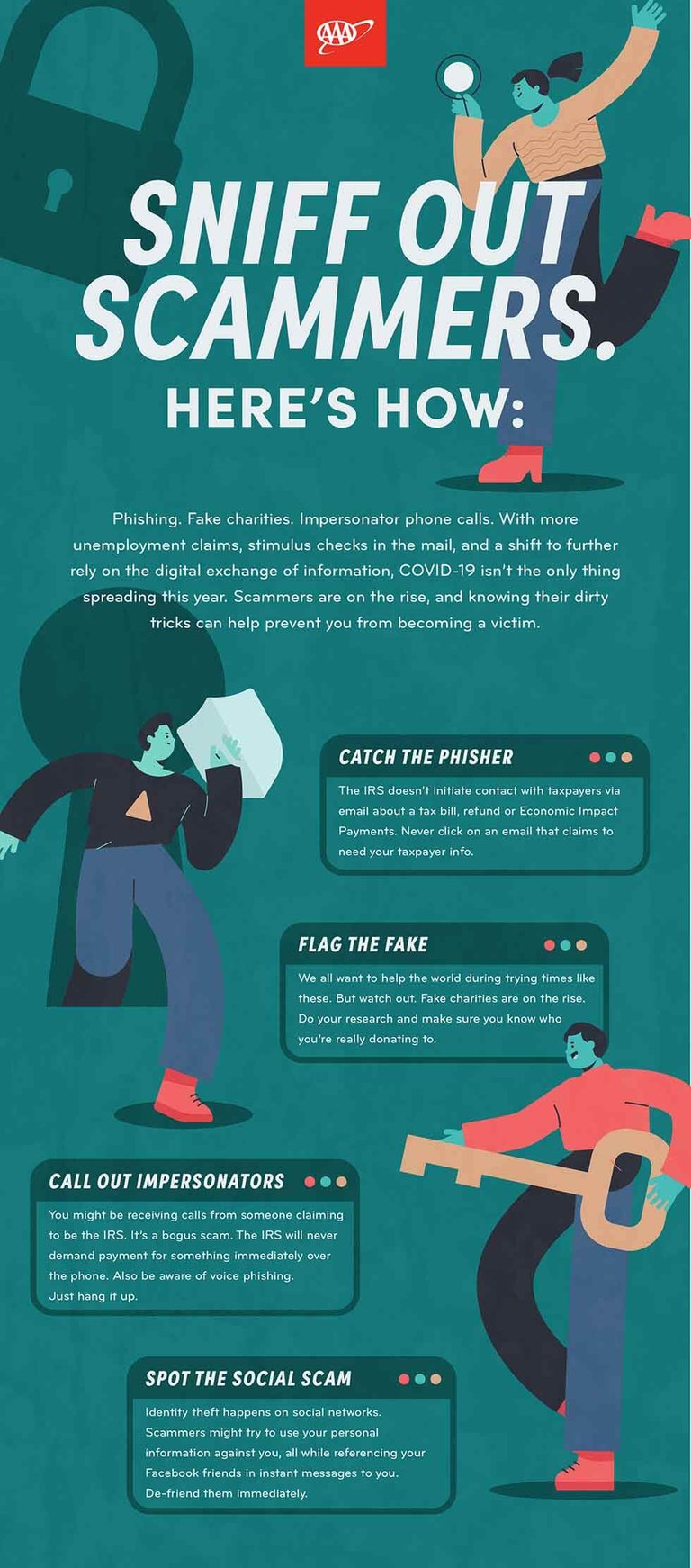

The world is becoming more connected every day, which unfortunately means more opportunities for scammers to take advantage of unsuspecting victims. Below are some common scams and tips on how to handle them. If you think you've been a victim of a scam, report it to the Federal Trade Commission (FTC).

Romance Scams
Scammers use online dating apps or social media to create fake relationships and gain their victims' trust. Once they establish a bond, they fabricate a story to persuade their targets to send money.
What to do:- Never send money or gifts to someone you haven't met in person.
- Cease communication immediately if you suspect a scam.
- Get input from friends and family before making financial decisions.
- Research their story to check for common scam patterns.
- Perform a reverse image search on their profile picture to verify their identity.

Phishing Scams
Phishing scams occur via email or text messages. Scammers impersonate trusted entities to trick you into revealing personal and financial information by clicking on a link or downloading an attachment.
Common phishing scam tactics:- Suspicious account activity alerts.
- Fake problems with your payment or personal information.
- Fraudulent invoices.
- Offers of free products or government refunds.
- Inspect messages for generic greetings, grammatical errors, and suspicious links.
- Contact the company directly to verify messages.
- Ensure your devices are updated with the latest security features.
- Enable multi-factor authentication for added account security.
- Regularly back up important data on an external drive.

IRS Scams
These scams typically involve fraudulent emails or phone calls from individuals pretending to be IRS representatives. Their goal is to trick you into providing sensitive financial information.
What to do:- Ignore unsolicited IRS emails and calls.
- Never disclose personal or financial information over email.
- Avoid clicking on links or downloading attachments in suspicious emails.
- Use the IRS tool "Where’s My Refund?" to check your tax refund status.
Fake Check Scams
Scammers send counterfeit checks and ask victims to deposit them into their accounts. They then instruct victims to send a portion of the money elsewhere before the check bounces.
What to do:- Be wary of unsolicited checks from unknown sources.
- Reject offers requiring you to deposit a check and forward funds.
- Never accept a check for more than an agreed selling price.

Social Security Scams
These scams involve fake calls from individuals claiming to be from the Social Security Administration (SSA). They may claim your Social Security Number is linked to criminal activity or has been suspended.
What to do:- Ignore calls requesting your Social Security Number.
- Refuse calls that demand payment or make threats.
- Don't trust caller ID; scammers can spoof numbers to appear legitimate.
- Never share your Social Security Number with unknown parties.
Shopping Scams
Some scammers advertise fake mystery shopping jobs that require you to pay a fee upfront. They promise high earnings but instead provide worthless materials or ask for personal information.
What to do:- Avoid mystery shopping jobs that require wiring money.
- Research opportunities to verify their legitimacy.
- Look for online reviews from real shoppers.
- Be cautious of newspaper and email ads.
- Ignore job offers that guarantee employment for a fee.
Inheritance Scams
In inheritance scams, fraudsters pose as lawyers or financial professionals and falsely claim that you’re entitled to an unclaimed inheritance. They demand fees upfront for processing the inheritance.
What to do:- Be wary of requests for upfront fees—legitimate attorneys don’t charge fees before revealing estate details.
- Scammers can be acquaintances; be cautious if someone you know asks for financial help related to an inheritance.
- Verify the source before sending money or personal details.
- Consult trusted individuals before making financial decisions.
By staying vigilant and following these precautions, you can protect yourself from scams. If you suspect fraudulent activity, report it to the Federal Trade Commission (FTC).
